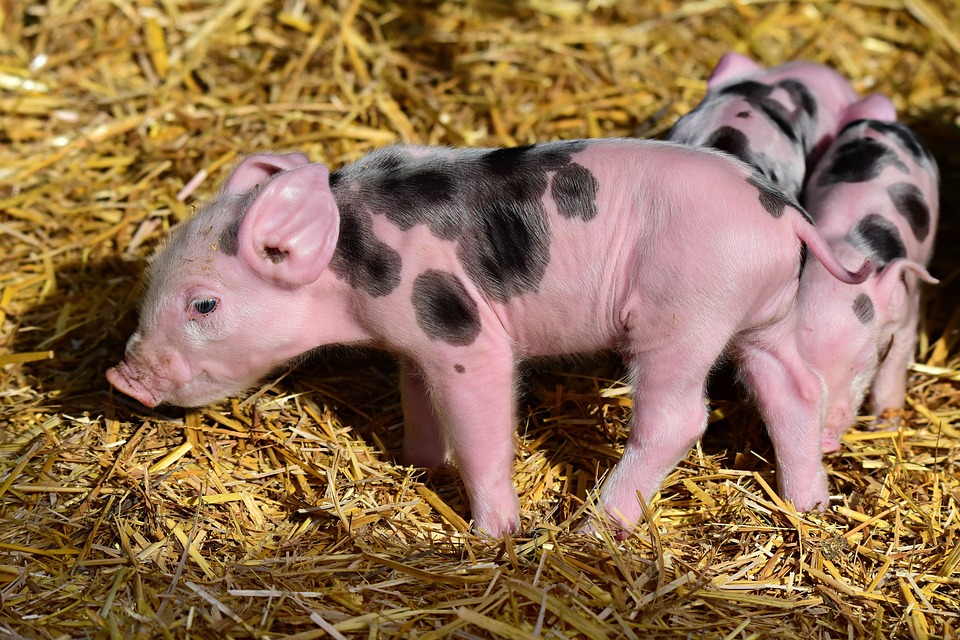The satirical novel “Animal Farm” was written in February 1944. George Orwell knowingly wrote it in simple and understandable language so that translators (especially Russian ones) could easily convey its true meaning to anyone, even to the most impaired reader. The book, consisting of 10 chapters, is a classic anti-utopian work, based on real historical events that occurred in Russia from 1917 to 1944.
We have gathered “Animal Farm” literary essay topics so that you can choose the one you like and write a quality essay on it. If you need more ideas for writing, check out our blog. For example, you can find these endangered species research topics helpful for your inspiration.
Table of contents
Persuasive essay topics for “Animal Farm”
- Napoleon was a tyrant, not a visionary leader. Argue how his rise to power mirrors Stalin’s oppression of the working class.
- Squealer is more dangerous than Napoleon because he manipulates language and truth to control the animals.
- Propaganda is the central tool of oppression in “Animal Farm.” Evaluate how slogans, rewriting history, and fear enforce the pigs’ authority.
- The Seven Commandments’ alterations prove that ideology is only as strong as those enforcing it. Argue how the pigs exploit the rules to justify corruption.
- Boxer symbolizes the exploited working class and sparks sympathy, not admiration. Explain how his fate reflects a societal betrayal.
- Animalism fails from the start—equality was never feasible. Argue that the novel critiques utopian ideals as impossible when humans (or pigs) seize power.
- Fear and intimidation, not consensus, build the pigs’ authority. Discuss how the dogs and show trials reinforce Napoleon’s dominance.
- Napoleon’s use of scapegoating (blaming Snowball) shows the dangers of false narratives. Argue that his tactics prevent dissent and foster paranoia.
- The satire in “Animal Farm” remains relevant today. Demonstrate why Orwell’s allegory continues to reflect modern politics and propaganda.
- “Animal Farm” is best understood with knowledge of Soviet history. Argue that historical awareness deepens comprehension of Orwell’s critique.
- Crushing the windmill symbolizes broken promises by political leaders. Argue how it’s used as a tool to manipulate the masses via false hopes.
- All animals are not equal: The novel shows that revolutions often create new elites. Using the pigs’ behavior, critique the idea of revolutions that replace one tyranny with another.
After the persuasive “Animal Farm” topics, consider exploring these Renaissance research topics—each designed for deep historical or cultural investigation.
Argumentative “Animal Farm” paper topics
- How is power maintained in “Animal Farm” by George Orwell?
- How does our environment (our homes/communities) shape our sense of self (values/personality traits)? Include examples from the book.
- How is democracy shown in the story of “Animal Farm”?
- How is Hitler’s invasion of Russia shown in “Animal Farm”?
- What made the animals follow the changes in “Animal Farm”?
- How do the pigs transmogrify “Animal Farm” from a utopia to a dystopia with Squealer’s role as a political sophist, especially in terms of the shifting commandments?
- Analyze the biography of George Orwell and his own personal links to the book “Animal Farm” if any.
- Pick quotes from the book and relate it to social studies aspects (i.e. dictatorships).
- Fear in “Animal Farm,” the novel by George Orwell.
- The theme of “Animal Farm”: how is the theme developed in the novel?
Once you’ve selected your argumentative topic, you might consider using a thematic essay approach to deepen your analysis. Learn how to write a thematic essay to end up with a perfect paper.
Discussion “Animal Farm” topics
- Authors often use descriptive details to develop plot. Discuss the elements of the plot of “Animal Farm” and how they help to develop the characters, or create tension.
- What is the theme of the book? Discuss how the theme is developed throughout the story. Give specific examples from the story (e.g. characters, plot points, language) where the author developed the theme.
- Discuss the poet’s use of figurative language in “Animal Farm.” Identify specific examples of figurative language from the book and their meaning. What impact does the figurative language have on the theme and understanding of the book?
- Discuss how the abuse of power causes three negative effects upon the animals of “Animal Farm.”
- Discuss how the animals either lose or give away their freedom. Use quotes and details from the text to support your discussion.
- In chapters four and five of “Animal Farm,” in what ways does Napoleon’s dictatorship manifest itself? Is his behavior at all justified?
- How is symbolism used in “Animal Farm” by George Orwell?
- Identify and discuss any incidents that challenge or provoke the perspectives of the characters in “Animal Farm.”
- What new insights did you, as a reader and student, gain from reading “Animal Farm”?
- Discuss a theme from “Animal Farm” that’s true to the story and real life. The theme must make a point.
- Write about the book “Animal Farm” and what you learned from the book.
- Why can freedom be harsh in the novel “Animal Farm”?
- From whose perspective is “Animal Farm” told? Why would Orwell have chosen such a perspective?
- What are some of Orwell’s major themes here? What is he trying to tell us in this modern parable of communism and capitalism? How does he view human nature? What is Orwell’s vision of history?
- Propaganda in “Animal Farm.”
- “Animal Farm” from a Marxist perspective.
- How does George Orwell develop power in “Animal Farm”?
If you need to deal with this type of paper, it is important to remember that a strong introduction sets the stage for your entire discussion. Learn how to write an introduction so that you can grab the reader’s attention.
Compare and contrast “Animal Farm” topics to write about
- Compare and contrast the following themes based on the following books: “Animal Farm” by George Orwell, and “Looking Backward” by Edward Bellamy (Utopian societies). What are the most important political ideas or themes presented in each book?
- Compare and contrast Snowball and Napoleon, both to one another, as well as the political figures they represent. What techniques do they use in their struggle for power? Do either, both, or neither of them qualify as a “good leader”? Explain.
- Compare Tim Burton’s film “Big Fish” and George Orwell’s “Animal Farm” in terms of factual truth and lies.
- Compare “Animal Farm” and “The Satanic Verses.”
- Compare and contrast on the topic of character, meaning that you will take an in-depth look at the two principals drawn here: Napoleon and Snowball.
- Compare power presented in “Macbeth” and “Animal Farm.”
- Compare and contrast “An Artist of the Floating World” and “Animal Farm.”
- Compare the historical aspects surrounding “Animal Farm” and “1984,” such as George Orwell’s previous fiction and non fiction work and their possible implications, and representing textual evidence in the form of direct citations from both novels.
- Compare socialism vs communism with evidence from “Animal Farm” and outside resources.
- How does Benjamin from “Animal Farm” and Gilgamesh from “The Epic of Gilgamesh” meaningfully inform life?
- Some political theorists contend that certain political/economic systems, by their nature, lend themselves to scheming, corruption, and intrigue, and others do not. Other theorists disagree: human beings, they say, are inherently fallible and will act in immoral ways regardless of the political system in which they operate. They may concede that some systems are more likely to uncover or inhibit corruption and misuse of power than are others. Think about George Orwell’s “Animal Farm” and Edward Bellamy’s “Looking Backward” in the context of this question. What do you think the two authors might say about it? What evidence do they present in their novels about how political actors behave when holding or pursuing power? More importantly, what do you think? In your response, feel free to cite contemporary examples or evidence.
- Compare journeys in “Animal Farm” and “Fahrenheit 451.”
- Compare the way “Animal Farm” and “The Green Mile” use symbolism. Where does symbolism have a major impact or an important role in the books?
- Compare how Stalin is like Napoleon in the book “Animal Farm.”
- Compare and contrast the movie and the book “Animal Farm.”
- Compare “Animal Farm” by George Orwell to Nazi Germany.
- Compare “The Stranger” and “Animal Farm.”
If you need to deal with a compare-and-contrast paper, it’s helpful to remember how many words will be needed to fill your speaking time, especially if you’re preparing a presentation alongside your essay. Knowing the words to minutes ratio helps you tailor your paper to your needs. In this way, you will you stay within time limits and maintain audience engagement.
Analysis “Animal Farm” essay topics
- Analyze the effectiveness and type of propaganda used by Napoleon in the novel “Animal Farm.”
- Analyze how Squealer and Napoleon use fear to manipulate all of the ignorant farm animals in “Animal Farm.”
- George Orwell’s “Animal Farm” is a satiric assault on the Marxist variety of fascism. What were George Orwell’s major objections to communism?
- Analyze the relationship between the book and the actual events that took place in Russia in detail.
- Analyze which animal is responsible for the corruption of the animal farm. Relate to the Russian revolution and which character represents which figure.
- Is “Animal Farm” by George Orwell still a valid allegory for the Soviet Union since it has collapsed?
- Who or what is at fault for the events in “Animal Farm”?
- Analyze how the animal farm in the book is used as symbolism to show communism.
- Analyze George Orwell’s avoidance of social force in “Animal Farm.”
- Analyze whether the focus of power in one person is good or bad in Animal Farm.
- Analyze the relation of societal values between “Animal Farm” and any modern historical analogue which works through social values in nature.
Explanatory topics in “Animal Farm”
- Explain how the theme of greed is presented in “Animal Farm.”
- When “Animal Farm” was recently published in Russia, it carried an introduction that said, “This story is about the excesses of fascism.” But is the novel really about fascism? Could it also be about Stalin’s communism? Could it be about both fascism and communism? But how could that be? Explain the concepts within the ideology, show their importance and place within the ideology, then show specifically how they relate to the novel.
- Explain what “All animals are equal, but some animals are more equal than others” is and what it really means. Use examples from “Animal Farm.”
- Explain how people’s ignorance can contribute to their social oppression using examples from “Animal Farm.”
- Explain how Orwell explores the problem of rhetoric in “Animal Farm.”
- Explain how Napoleon seems to feel threatened by Boxer in “Animal Farm.”
- Explain how the message of “Animal Farm” would come across effectively to someone who knows nothing about the history of the Soviet Union.
- Explain how animals come closest to achieving Orwell’s perspective in “Animal Farm.”
- Explain how the corruption of socialist ideals is presented in “Animal Farm.”
- Explain how the societal tendency toward class stratification is presented in “Animal Farm.”
We hope that you like our “Animal Farm” writing topics. Also, check out our essay prompts for Of Mice and Men to deal with your next literature assignment successfully. However, if you don’t know how to start writing an essay, feel free to get our help. You just need to place an order on our site with your requirements and set the deadline. Even if you get the most difficult task, don’t worry – our writers can handle any assignment of any difficulty level.
Go to the order page and get your paper done in the fastest possible way.









